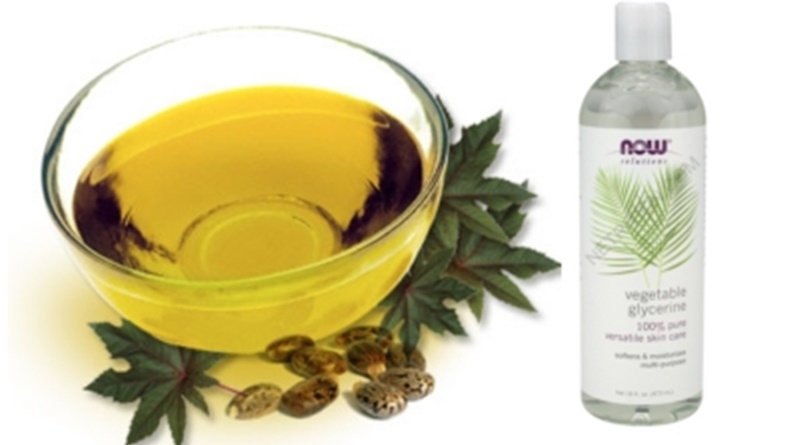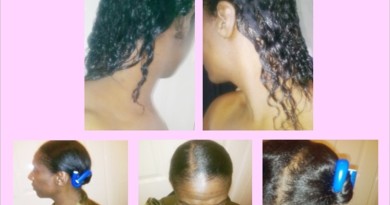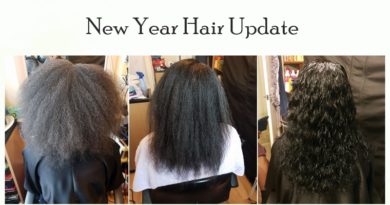Hair care: humectants and polar oils
I received an email this week from a fellow natural from Kansas City who was interested in my use of vegetable glycerine/water/olive oil as a twice daily moisturiser and in humectants generally, so I have decided to respond on my blog.
I should start by saying that I am by no means an expert on afro textured hair, but I am an expert when it comes to research. As an academic, my approach to everything is always to conduct thorough research in the first instance.
So whether I am shopping for clothes, furniture, food or hair care products I do not make a move without researching what I am proposing to purchase and use. Before devising my hair care regimen I researched all the ingredients.
I should also add that I’m a bit picky when it comes to sources. There is plethora of information to be found on blogs and websites and within online communities – but this is rarely ever referenced, so there is no way of telling where the information originated from.
So I tend to rely on books or articles in journals that are referenced, where the information is usually sourced from studies and scientific data. It is for this reason that you will find constant references on my blog posts to The Science of Black Hair by Audrey Davis-Sivasothy – because it is really the only science-based book on afro textured hair.
So back to the email. The questions were:
I have just read about you and your hair regimen. Very interested in your regimen. I live in Kansas City, MO. It gets very cold and dry here in the winter months. Do you change your hair regimen in the winter? Are you in a state that has cold and dry winters? Understanding humectants and how they work in the winter is a challenge. I love castor oil but it is a humectant and I really want to use it in the winter. Is this a good idea? Just wondering.
Also, your daily regimen includes putting on the H2O mixture in the morning and evening. How do you keep the frizz away at the scalp area? My H20 mixture only consist of water and veggie glycerine. Perhaps, the reason for the frizzy look by midweek?
In answer to the first question, since I am based in the UK and based in the north-west of England, yes it certainly does get very cold in the winter months. We have a lot of rain and in recent years snow! Do I change my hair care regimen in the winter? In all honesty this will be the first winter as a fully-fledged natural, but I do not intend to change my hair care regimen and this is why.

Humectants (the most commonly used on afro textured hair being vegetable glycerine) draw moisture from the air and transport it to the skin and hair. In terms of the scalp, moisture is drawn from the deeper layers up to the top skin layers.
Humectants therefore play an important role in moisturising afro textured hair. The issue about using humectants in the winter is whether vegetable glycerine actually draws moisture away from the hair during cooler weather.
This would be the case if it were used alone, but as part of water based mixture it is perfectly okay – because the molecules in the glycerine use the water in the mixture to stabilise itself. It is also advisable to use heavier oils and butters, such as shea butter, to seal the moisture in. (The Science of Black Hair pp82-82)
The reason I add olive oil to my water mixture is to add more lubrication to my hair since I have used a hair colour, as this helps to combat the dryness that results from any type of chemical treatment.
I should also add in response to the email that castor oil is NOT a humectant. It is a natural oil and one that has a high polarity. Polarity in natural oils are highly beneficial as they provide the most non-permeable seals that prevent moisture from escaping from the hair, and over time they migrate to the hair fibres.
Castor oil, along with other polar oils like coconut oil and almond oil are the best oils for afro textured hair because they can be easily rinsed off and you can rewet and seal the hair frequently without getting a lot of build on the outer cuticle of the hair. They also bond with proteins deep within the hair which strengthens the overall structure of the hair and reinforces the hair shaft. (The Science of Black Hair p89)
I use castor oil mixed with coconut oil as a pre-poo conditioner which is applied the night before I wash my hair as an overnight conditioner. Coconut oil also has added benefits as it protects the hair from hydral fatigue that occurs during washing. (The Science of Black Hair pp 89-91)
My last response is concerning frizz in the scalp area. Not sure what is meant here as the scalp is the whole head! But I have recently discovered as I mentioned in my post last week, that Apple Cider Vinegar is a great cure for frizziness:
“As an acidic substance it causes the cuticle layers to lie flat and tightly together, which protects the inner cortex of the hair. Closed cuticle layers result in fewer tangles and less breakage. (The Science of Black Hair pp44-45)
So there you have it! Results so far using my hair care regimen have been promising: about an inch and a half of growth in three months (see my gallery). I expect that for the next six months I will be keeping my hair in twists for 95 per cent of the time and next summer will be experimenting with different hairstyles!















